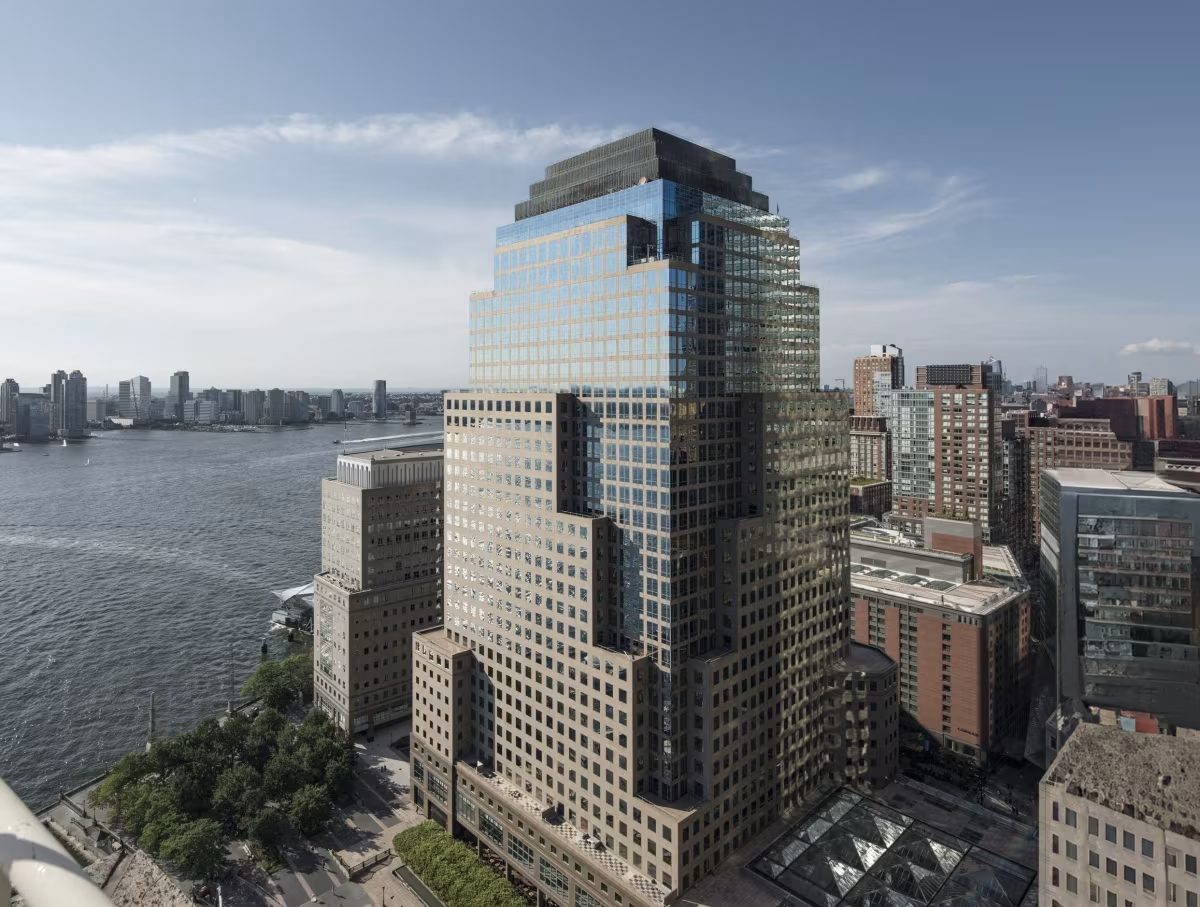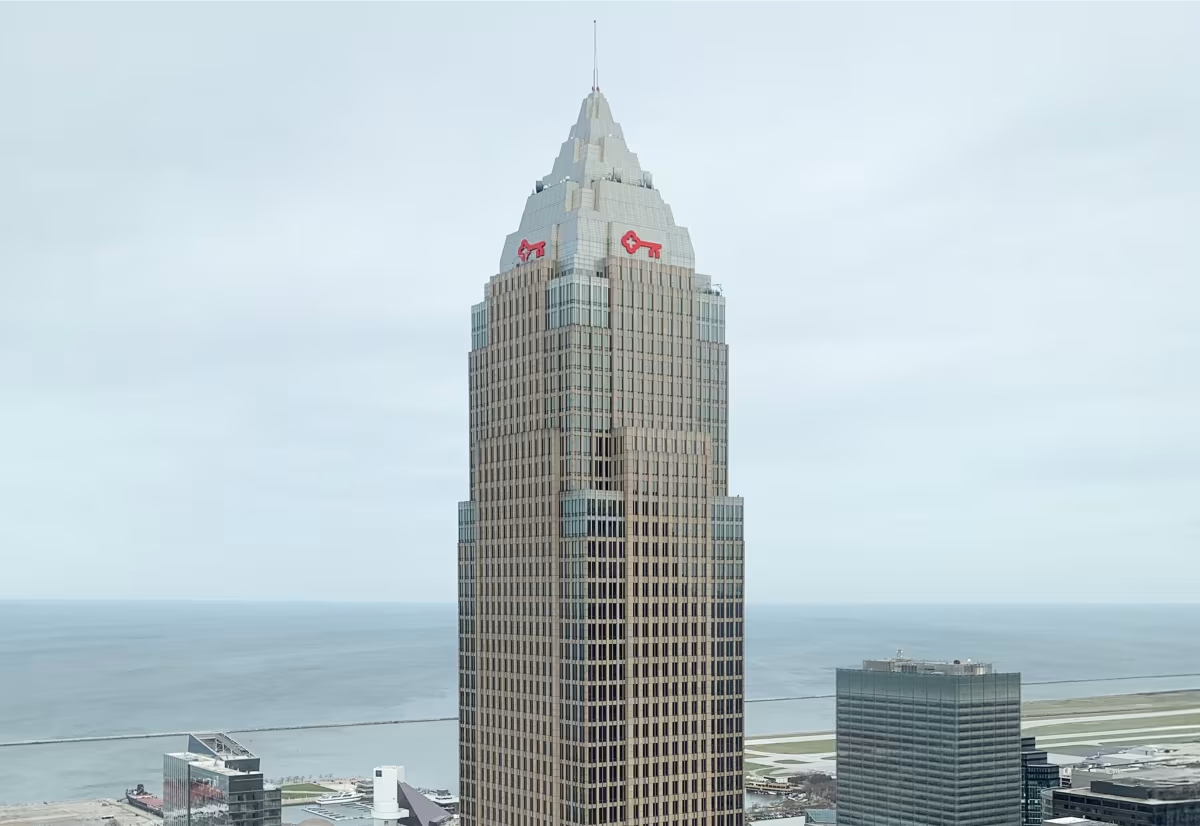250 Vesey Street Building vs Key Tower


Comparing the 250 Vesey Street Building and the Key Tower is an interesting exercise, because even though they are located in different cities (New York, NY and Cleveland, OH), both were designed by César Pelli & Associates and finished within within 5 years of each other. This gives us the chance to see how the same architect's ideas were expressed in different urban contexts almost simultaneously.
Height & Size
The Key Tower is clearly the larger tower of the two, both in terms of height and number of floors. It rises to 948ft (289m) with 62 floors above ground, while the 250 Vesey Street Building reaches 499ft (152m) with 34 floors above ground.
Despite being taller and having more floors, Key Tower has less total built-up area than 250 Vesey Street Building.
Of course, each project may have faced different briefs or regulatory constraints, which we don't really know about and could also explain the outcome.
Architectural Style
Both the 250 Vesey Street Building and the Key Tower were designed in line with the aesthetic conventions of the Postmodernism style.
The Key Tower was designed at a moment when the Postmodernism style was already in decline, making it more of a lingering expression of the movement. In contrast, the 250 Vesey Street Building was built when the style still carried greater cultural weight.
Uses
Both the 250 Vesey Street Building and the Key Tower were designed to serve as commercial towers, and that has remained their main use since their completion, serving similar roles in the urban fabric.
Structure & Facade
Both towers share the same structural solution, a Frame system.
A frame structure uses a grid of columns and beams to carry the building's loads. This frees the walls from structural duties, allowing for flexible floor plans and larger windows.
However, when it comes to the facade, both buildings use different approaches. The 250 Vesey Street Building uses a Curtain Wall facade, while the Key Tower uses a Modular facade.
A Curtain Wall facade like the one seen in the 250 Vesey Street Building uses a lightweight glass curtain wall hung from the structure, while a modular facade like the one seen in the Key Tower employs prefabricated panels, often mixing solid surfaces with smaller windows.
| 250 Vesey Street Building | Key Tower | |
|---|---|---|
| César Pelli & Associates | Architect | César Pelli & Associates |
| 1984 | Construction Started | 1989 |
| 1986 | Year Completed | 1991 |
| Postmodernism | Architectural Style | Postmodernism |
| Commercial | Current Use | Commercial |
| 34 | Floors Above Ground | 62 |
| 152 m | Height (m) | 289 m |
| 176869 | Built-up Area (m²) | 116127 |
| Frame | Structure Type | Frame |
| Steel | Vertical Structure Material | Reinforced Concrete |
| Concrete | Horizontal Structure Material | Concrete And Steel |
| No | Facade Structural? | No |
| Granite, Glass | Main Facade Material | Granite, Glass |
| Olympia & York Companies | Developer | Richard E. Jacobs Group |
| Thornton Tomasetti | Structural Engineer | Skilling Ward Magnusson Barkshire |
| NY | State | OH |
| New York | City | Cleveland |
| 250 Vesey Street | Address | 127 Public Square |